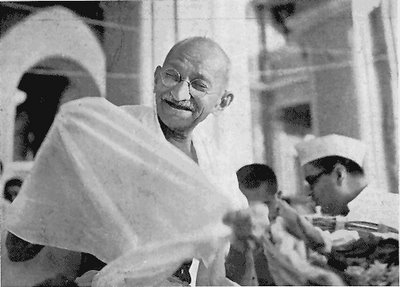Is the bell (curve) tolling for "light bulbs"?

Edmund Scientific's Optical boys might have developed the much-wished-for halogen/HID-killer LED. [Press release...]
Update 2006.02.16: some info on how they claim to do it.
Here we go. If this stuff is actually manufacturable, this is the knee of the incandescent lamp curve... and not far from the knee for fluorescents, too. W00t.
I've already seen merch in the local hardware store that has labeling implicitly apologizing for not being LED. Is this buggywhip time for incandescent lamps? Will they be laboratory items only soon? If you need a continuous spectrum they're hard to beat, so they'll still be used in theater and film (production and presentation, both). Apart from that...? People worried about surviving EMP: vacuum tubes resulted from the Edison effect observed in incandescent lamps. And that's about all I can think of.
I really want someone to write the history of this project. Not just the Edmund breakthrough, although that might make a book in itself, I don't know. The White LED was effectively unthinkable about 30 years ago, AFAIK. But I'd love to find out I was wrong.
I am sure there are studies in gumptionology to be found in this history, at least as much so as in, say, Tracy Kidder's The Soul of a New Machine, q.v.
The biggest lesson in gumptionology I got from that book was a bit like the line from the movie Blade Runner: "The candle that burns twice as bright lasts half as long." There is a famous burnout quote mentioned at the bottom of the article linked immediately above. What price gumption (especially in Flow Zero)? Coupland's Microserfs talks about the seductive qualities of being "Version 1.0" -- of doing something groundbreaking.
Groundbreaking can be mindbreaking. No one else can tell you whether that was worth it. And grinding and pumping out 40-hour days is no guarantee of "success" -- what exactly is that, again?

